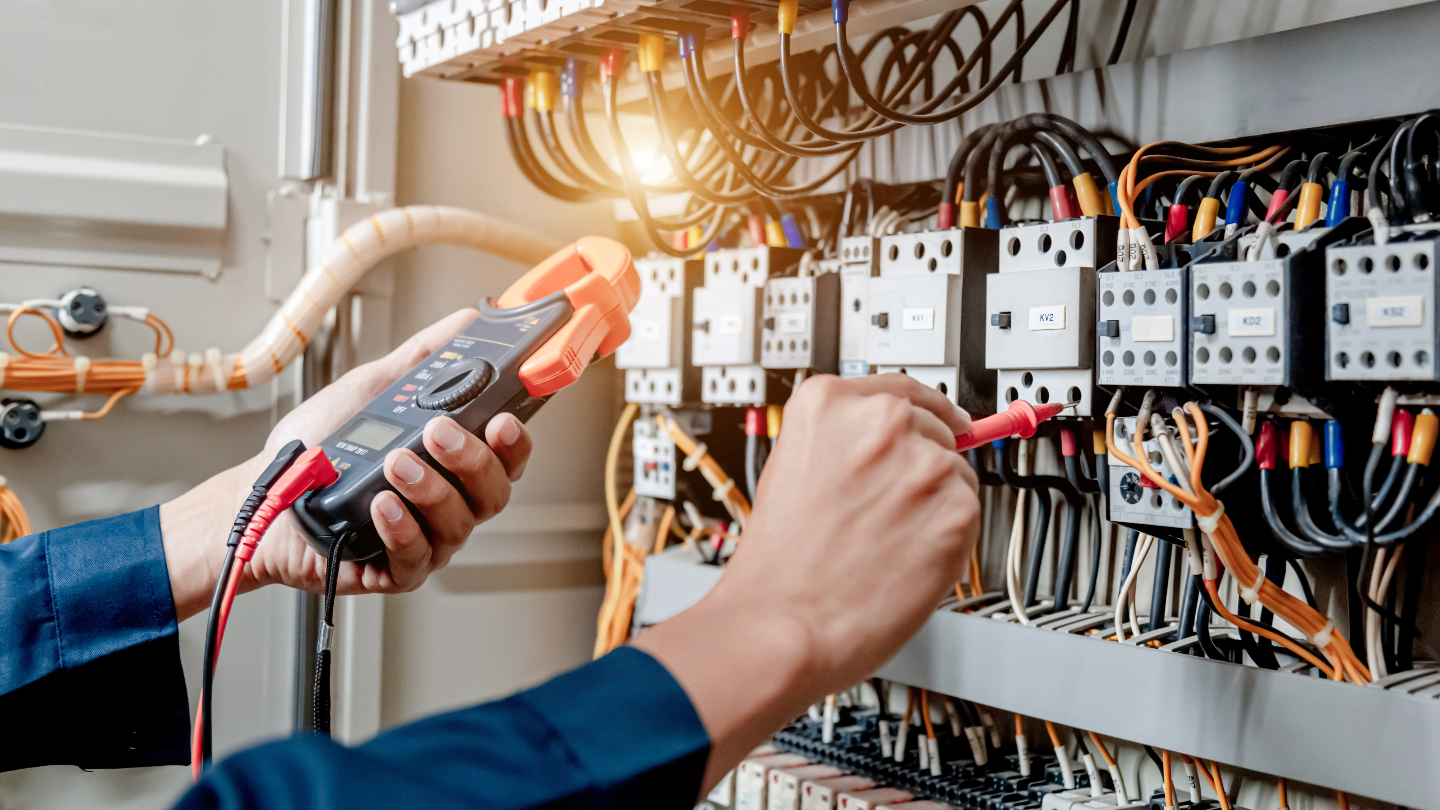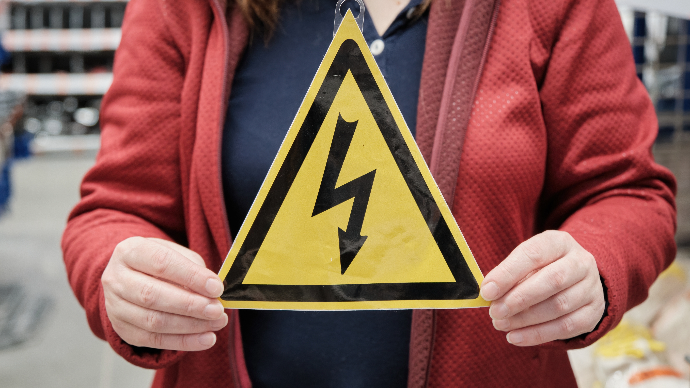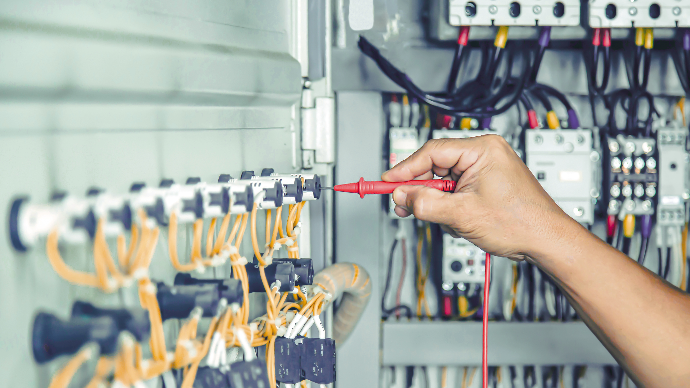Common Objections to Electrical Testing
Debunking Myths and Alleviating Concerns
Electrical testing in commercial properties is a vital safety procedure that ensures the electrical installations and systems are efficient and hazard-free. However, many property owners and facilities managers disregard this necessary precaution due to various misconceptions. This post aims to address and debunk these common objections, clarifying the importance and benefits of regular electrical testing.
Common Objection 1: "Electrical Testing is too disruptive to daily operations."
Debunking the Myth: The fear of disruption is a significant concern among commercial property owners. They worry that electrical testing could halt their operations, leading to lost productivity and revenue. However, this is far from the truth. Testing can be scheduled during off-peak or shutdown periods to minimise potential disruption. Modern testing techniques and equipment have also evolved to be less intrusive, allowing most of the property's functions to continue undisturbed while the testing is carried out.
Alleviating the Concern: By planning strategically, businesses can undergo electrical testing without impacting their operations. The testing firm can coordinate with the property management to ensure that the testing schedule aligns with the business cycles of the commercial property, thereby mitigating any possible interruptions.
Common Objection 2: "It's just an unnecessary expense."
Debunking the Myth: Many see electrical testing as an unwarranted cost rather than an investment. This perspective overlooks the potential financial risks untested systems pose. Electrical failures can lead to serious damages, legal liabilities, and even catastrophic accidents, which are considerably more costly than periodic testing.
Alleviating the Concern: Regular electrical testing is a preventive measure that saves money in the long run. Detecting problems early reduces the need for expensive emergency repairs and downtime. Moreover, it helps extend the lifespan of electrical equipment, optimise performance, and ensure energy efficiency, cumulatively reducing operational costs.
Common Objection 3: "Our electrical systems are fairly new; testing isn't necessary."
Debunking the Myth: The age of the electrical systems often misleads property managers into a false sense of security. New installations can suffer from issues such as design errors, installation defects, and early equipment failures. These problems, if not identified early, can evolve into more serious concerns.
Alleviating the Concern: Regardless of the age, electrical systems must be regularly assessed to ensure they are up to standard and free from defects. Early testing helps in identifying any initial faults that can be rectified before they lead to larger issues, thus safeguarding the property and its occupants.
Common Objection 4: "We've never had any electrical problems"
Debunking the Myth: The absence of evident problems does not guarantee the safety or efficiency of an electrical system. Electrical faults often go unnoticed until they manifest into major issues or failures. Waiting for a visible sign of electrical failure can be dangerously costly.
Alleviating the Concern: Regular electrical testing helps in detecting latent problems that are not immediately obvious. It ensures that all aspects of the electrical system are functioning correctly and safely, significantly reducing the risk of unexpected failures and ensuring compliance with safety regulations.
Common Objection 5: "We can handle electrical testing internally."
Debunking the Myth: While it's true that some aspects of routine maintenance can be handled internally, professional electrical testing involves complex assessments that require specialised tools and knowledge. Internal staff may not be fully equipped or trained to identify subtle but critical issues that professional testers can.
Alleviating the Concern: Hiring accredited professionals ensures that the electrical testing is thorough and compliant with the latest safety standards and regulations. These experts are trained to spot potential issues that untrained eyes might miss and can provide certification that your systems are in compliance, which can be crucial for insurance and legal purposes.
Common Objection 6: "The regulations don't require it as often as you suggest."
Debunking the Myth: Compliance with minimum standards is often misunderstood. While regulations may set basic requirements, these are often the absolute minimum frequencies for testing and may not consider certain environments' specific demands or risks.
Alleviating the Concern: By adhering to a more rigorous testing schedule, businesses can ensure a higher standard of safety and efficiency tailored to their particular needs. This proactive approach ensures compliance with the law and often exceeds it, thereby enhancing the property's safety and operational reliability.
Common Objection 7: "Electrical testing will lower our property value."
Debunking the Myth: There is a misconception that discovering faults during electrical testing can lead to a decrease in property value. In reality, the opposite is often true. Identifying and correcting electrical issues can increase a property's market value by proving it is well-maintained and safe.
Alleviating the Concern: Regular electrical testing demonstrates due diligence and a commitment to safety, which are attractive qualities to potential buyers or tenants. It shows proactive management and reduces the likelihood of future liabilities, which can significantly boost the property's appeal and value.
Common Objection 8: "We can wait until we see signs of trouble."
Debunking the Myth: Waiting for signs of electrical problems is akin to playing with fire. Electrical issues may not present visible signs until it is too late, and the consequences can be severe, including fire hazards, operational failures, and serious safety breaches.
Alleviating the Concern: Proactive electrical testing allows for identifying and resolving potential issues before they become actual problems. This approach ensures uninterrupted operations and maintains a safe environment for occupants and visitors.
Common Objection 9: "Our electrical contractor says it's unnecessary."
Debunking the Myth: Sometimes, even trusted electrical contractors might understate the need for regular testing because they underestimate the potential risks or are not updated with the latest safety standards. This advice can be misleading and might stem from a lack of specialised testing knowledge or equipment.
Alleviating the Concern: It's important to rely on advice from experts who specialise in electrical testing. These professionals are up-to-date with the current regulations and best practices and have the specific tools and expertise required to conduct comprehensive diagnostics. Getting a second opinion from a certified testing professional can provide a clearer and more accurate assessment of your electrical system's health.
Common Objection 10: "Testing results might force us to undertake expensive upgrades."
Debunking the Myth: The concern that testing will reveal problems requiring costly fixes can deter property managers from initiating electrical testing. While it's true that testing can uncover issues needing attention, addressing these issues early can result in savings, preventing more severe and expensive damage in the future.
Alleviating the Concern: It is crucial to understand that preventative maintenance can lead to significant long-term savings. Upgrades or repairs can improve efficiency, reduce energy consumption, and lower the risk of costly emergency repairs and business interruptions. Investing in upgrades or repairs after testing is not merely a cost; it's an investment in the property's safety and operational efficiency.
Common Objection 11: "We can't find a reliable service provider"
Debunking the Myth: Finding a dependable and qualified electrical testing service can be challenging, but it's far from impossible. The hesitation often stems from concerns about the reliability or credibility of service providers.
Alleviating the Concern: Thorough research and seeking recommendations can lead to finding well-qualified and reputable testing services, just like us at T&M Electrical. Look for providers with strong testimonials, appropriate certifications, and a track record of reliable service. Engaging with industry bodies or trade associations can also help identify vetted professionals who adhere to the highest standards.
Common Objection 12: "Testing is just a way for firms to sell more services."
Debunking the Myth: There's a cynical view that electrical testing is merely a pretext for service firms to identify problems they can charge to fix. This scepticism can prevent property managers from engaging with testing services due to a fear of unnecessary upselling.
Alleviating the Concern: Transparent and ethical testing services provide detailed reports and communicate openly about any issues they find, with no obligation to use them for subsequent repairs or upgrades. Choosing a reputable firm with a transparent pricing structure and ethical business practices can ensure that you receive unbiased advice and services.
Common Objection 13: "Our insurance covers any electrical issues."
Debunking the Myth: Relying solely on insurance to manage the risks associated with electrical systems is a common misconception. While insurance might cover damages after an incident, it does not prevent the occurrence of electrical failures. Moreover, insurance may not cover all aspects of damage, particularly related to downtime or loss of business reputation.
Alleviating the Concern: Proactive electrical testing goes beyond just preventing incidents that might lead to claims. It helps maintain operational continuity and can lower insurance premiums by demonstrating a commitment to safety and reduced risk exposure. Insurance should be viewed as a backup, not a primary strategy for electrical safety.
Common Objection 14: "We had a test a few years ago; it should still be fine."
Debunking the Myth: Electrical safety and efficiency can deteriorate over time due to environmental factors, usage patterns, and natural wear and tear. Assuming that a past test is still valid for an extended period overlooks the dynamic nature of electrical systems and the continuous changes in safety regulations.
Alleviating the Concern: Regular testing is recommended because it accounts for changes and ageing in electrical systems. The testing frequency should be based on several factors, including the age of the installation, the environment in which it operates, and usage patterns. Keeping testing schedules aligned with these variables is essential to ensure ongoing safety and compliance.
Common Objection 15: "We only use low-voltage systems; they aren't as risky."
Debunking the Myth: The misconception that low-voltage systems are not hazardous can lead to neglecting necessary electrical safety practices. While low-voltage systems generally pose less risk of electrocution, they can still cause fires and other safety hazards if malfunctioning.
Alleviating the Concern: All electrical systems require regular inspection and maintenance to operate safely and efficiently regardless of the voltage. Faults in low-voltage systems, such as overloaded circuits or faulty connections, can still pose significant risks.
Common Objection 16: "Electrical testing is just a regulatory checkbox."
Debunking the Myth: Viewing electrical testing as merely a compliance exercise underestimates its importance. This perspective might lead to minimal engagement with the process and the ignoring of its potential benefits, seeing it as a hurdle rather than a protective measure.
Alleviating the Concern: Electrical testing should be integrated into a broader risk management strategy. It not only ensures compliance with safety regulations but also plays a critical role in protecting assets, preserving life, and enhancing system efficiency. This approach helps transform the perception of electrical testing from a regulatory requirement to an integral part of operational excellence.
Addressing these common objections head-on clarifies the myths surrounding electrical testing and highlights its essential benefits. Ensuring your electrical systems' safety, compliance, and efficiency through professional testing is not just a regulatory formality—it's a crucial investment in your property's future. Act today to safeguard your operations, reduce risks, and enhance property value. Contact us now!
Common Objections
Common Objections
Common Objections
Common Objections Common Objections









